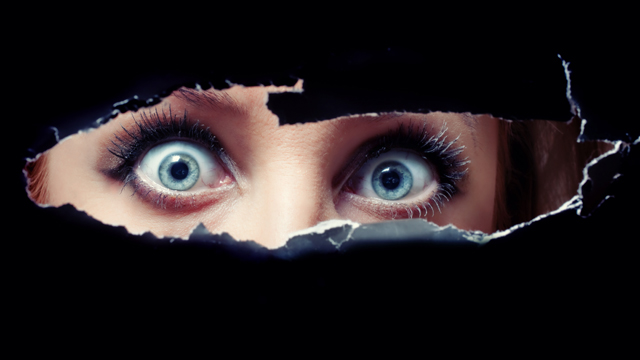
Fear can be debilitating. Whether it’s a deep-rooted dread left over from a childhood trauma or anxiety that popped up in adulthood, fears can stir up quite an internal storm. For most of us fear either triggers our instinctual “fight or flight” response or is a red flag signaling that we’re treading into dangerous territory and should head back to the comfort of the familiar. We have been programmed to believe that fear is bad, which prevents many of us from taking healthy risks and realizing our fullest potential. However, if we look at fear from a kabbalistic point of view, we can use it to gain insight and a stronger connection to the Creator.
When it comes to dealing with fear, author and personal development trainer, Marie Forleo says, “It’s not about getting over your fear, but getting into your fear.” Psychologists have been treating patients suffering from intense phobias with a technique called “flooding” for decades. Flooding is forced and extended contact with the object or situation that stimulates fear. This can be as simple as forcing a person who suffers from arachnophobia (fear of spiders) to handle a tarantula repeatedly, or as complicated as forcing a victim of trauma to relive the psychologically scarring incident. In both cases, the patient must dive into the fear, live it and feel it. Over time, the patient eventually unlearns the fear, opening them up to free and less stressful interaction with the world.
While flooding is a technique developed in the 1960s, the idea that we must face our fears stems from ancient kabbalistic wisdom. The Biblical story of Chukat highlights this idea of overcoming fear. While the Israelites are wandering around the desert, they begin to complain to Moses. They are tired of eating mana and are no doubt suffering the discomforts of desert life. God subsequently sends burning snakes into the community who bite many people. Some are injured and some die as a result. Moses pleads to God on behalf of the people. God agrees to send the snakes away, but instructs Moses to build a large bronze snake coiled around a pole. The Israelites must stare at the snake and, like phobic patients in treatment, those injured by the snake will be healed.
The idea of confronting our fears is uncomfortable for most. We have been taught to avoid the things we fear. This creates a pattern that is hard to break out of. Yet, if we do not learn to embrace our fears and learn from them, we risk losing opportunities for spiritual growth and the realization of our dreams.
Explaining the importance of fear, author, Tim Ferriss, says, “Sometimes it shows you what you shouldn’t do, but more often than not, it shows you what you should do.” When we examine our fears, we are better able to see their origins and separate the rational from the irrational. In her lecture, Erasing Fear Consciousness, Monica Berg categorizes fears into three different categories: silly, healthy, and real.
Real fears are those that are supported by real danger, such as death. We understand that our bodies are fragile and real fears keep us physically safe. Most of our fears fall into this category. Healthy fears are necessary and insure our survival. For instance, fear of getting hit by a car prevents some from jaywalking across a busy city street. However, it is not an active fear that we experience during most hours of the day. Healthy fears pop up when we need them.
On the other hand, silly fears are not based on any real danger. Phobias can fall into this category, but we can also experience silly fears unexpectedly. For example, you may not fear an amusement park ride until sitting at the top of a very high roller coaster track about to plummet farther than you’d ever dare to jump. These kinds of fears can also take root over long periods of time, like the fear of failure, which can stifle our ambitions. It can prevent some from applying for a dream job, taking dancing lessons, or learning to speak Italian—all things we might benefit from if we confront it head on. This kind of fear is not self-preservation; rather, it is self-sabotaging.
The bottom line is that fear prevents spiritual growth. As Rav Berg says, “Fear is not an option.” Remember, fears are only as big as we allow them to be. When we look fear in the eyes, we not only release it but we stand to grow stronger and closer to the Creator. Fear is a teacher and a tool for achieving your full potential.
